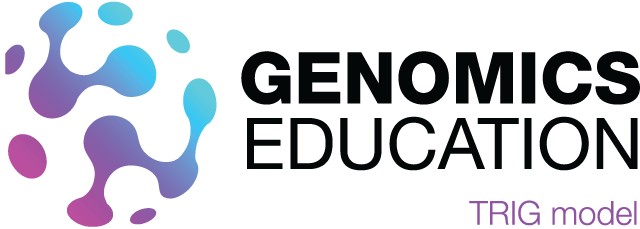Empowering Education in Genomic Medicine
Vetted, accessible, free resources for healthcare professionals and educators to advance genomic medicine knowledge worldwide.






ABOUT THE TRIG MODEL
The “TRIG model” is a structured approach to developing resources for genomics education.
The “TRIG model” provides a structured, team-based learning approach to genomics education through resources developed by multidisciplinary committees including representatives from leading healthcare professional organizations. More than 50 TRIG model-related workshops, recognized as an “educational innovation,” have trained over 2,000 participants worldwide. Accessible Instructor Handbooks and Toolkits support local implementation, with over 4,400 registrants across 90 countries. There have been over 10 TRIG model-related manuscripts, with support from the National Cancer Institute (NCI) and the National Human Genome Research Institute (NHGRI).
Genomics Education

Training Residents in Genomics (TRIG)

Undergraduate Training in Genomics (UTRIG)

Training Fellows in Genomics (TFIG)

Universal Exercises
A universal approach to creating genomics exercises for almost any specialty, based on the TRIG model
Over 4, 400 Registrants
Educational resources accessed by thousands around the world, supporting continuous learning in pathology.
More than 90 Countries
Expanding global impact, with downloads from over 90 countries, fostering international knowledge sharing.
Rigorously Evaluated
Over 10 TRIG
model-related publications.
WORKSHOP TESTIMONIAL
“This workshop taught me the real-world applications of genomics and gave me a better understanding of the processes and thought process behind genetic testing, as well as it’s advantages and disadvantages.”
